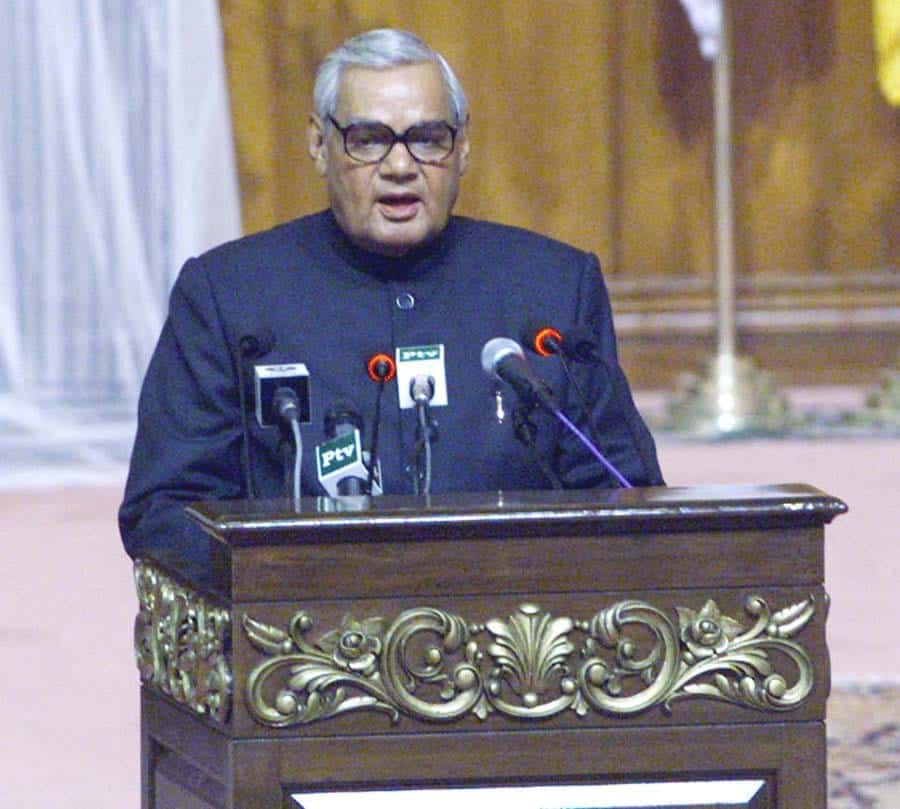
Atal Bihari Vajpayee
Atal Bihari Vajpayee (25 December 1924 – 16 August 2018) was an Indian statesman who served three terms as the Prime Minister of India, first for a term of 13 days in 1996, then for a period of 13 months from 1998 to 1999, followed by a full term from 1999 to 2004. A member of the Bharatiya Janata Party (BJP), he was the first Indian prime minister not of the Indian National Congress to serve a full term in office. He was also noted as a poet and a writer.
He was a member of the Indian Parliament for over five decades, having been elected ten times to the Lok Sabha, the lower house, and twice to the Rajya Sabha, the upper house. He served as the Member of Parliament for Lucknow, retiring from active politics in 2009 due to health concerns. He was among the founding members of the Bharatiya Jana Sangh (BJS), of which he was president from 1968 to 1972. The BJS merged with several other parties to form the Janata Party, which won the 1977 general election. In March 1977, Vajpayee became the Minister of External Affairs in the cabinet of Prime Minister Morarji Desai. He resigned in 1979, and the Janata alliance collapsed soon after. Former members of the BJS formed the BJP in 1980, with Vajpayee its first president.
During his tenure as prime minister, India carried out the Pokhran-II nuclear tests in 1998. Vajpayee sought to improve diplomatic relations with Pakistan, travelling to Lahore by bus to meet with Prime Minister Nawaz Sharif. After the 1999 Kargil War with Pakistan, he sought to restore relations through engagement with President Pervez Musharraf, inviting him to India for a summit at Agra.
The administration of Narendra Modi declared in 2014 that Vajpayee’s birthday, 25 December, would be marked as Good Governance Day. In 2015, he was conferred India’s highest civilian honour, the Bharat Ratna, by the President of India, Pranab Mukherjee. He died on 16 August 2018 of age-related illness.
Read More About Atal Bihari Vajpayee
